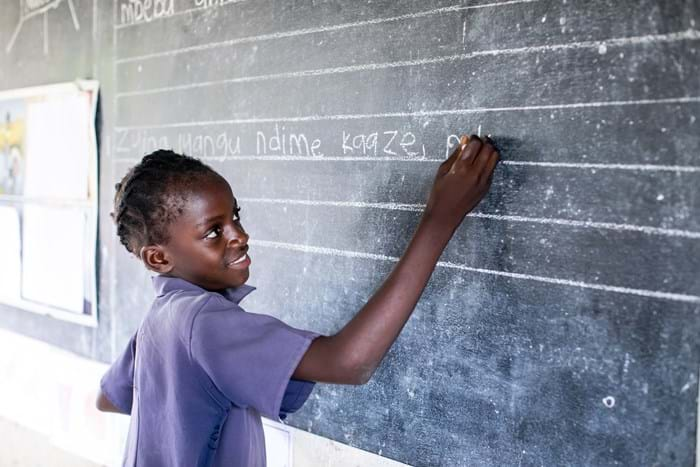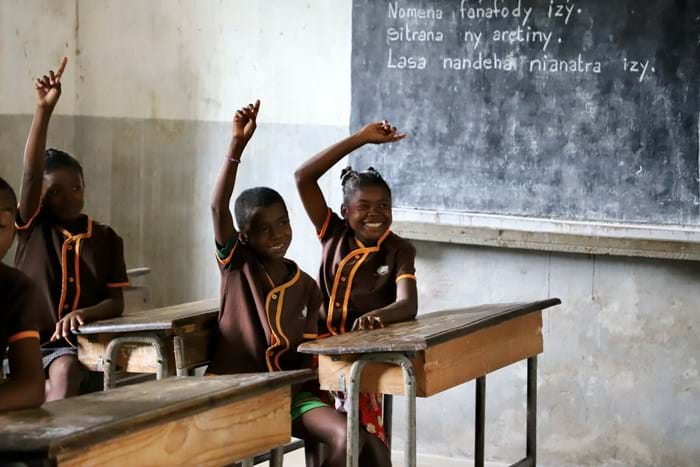- 00,000
children benefit directly from the project
- 0,000
teachers are trained and applying the learning programme methodology
Where
Luapula, ZambiaFocus area
EducationDuration
2020-2025Economy
DKK 15 million
Background
Widespread rural poverty and high unemployment levels pose significant challenges for Zambia.
Access to quality and equitable education remains a challenge for most children, especially those living in remote and marginalised areas. While Zambia has made significant progress in achieving universal primary education, access to education is declining at an alarming rate.
Quality of education also continues to be a significant concern. On average, Zambian children go through 9.2 years of education. However, when adjusted for the actual learning experiences, the total years of actual learning experience comes down to 5.2 years.6 As such, a large proportion of Zambian children are leaving the education system without acquisition of foundational literacy and numeracy skills.
Equity in education provision is another issue of great concern. Despite the government’s Free Primary Education Policy, there are various barriers that limit participation especially among poor populations. The number of out-of-school children has continued to grow, driven by insufficient school places and socio-economic factors that push children out of the school system. Although Zambia has made some good progress to boost girls enrolment in school, especially at the primary level, girls still have a higher chance of dropping out of school compared to boys.
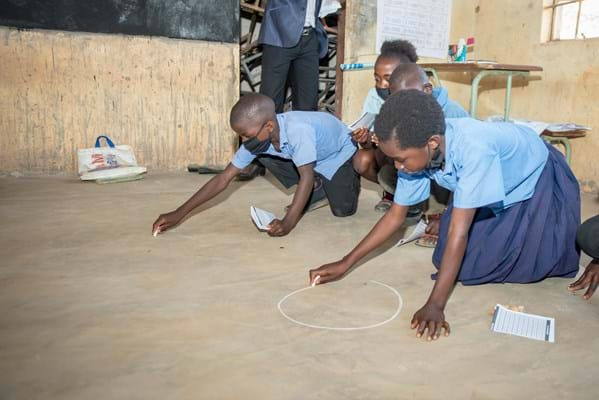
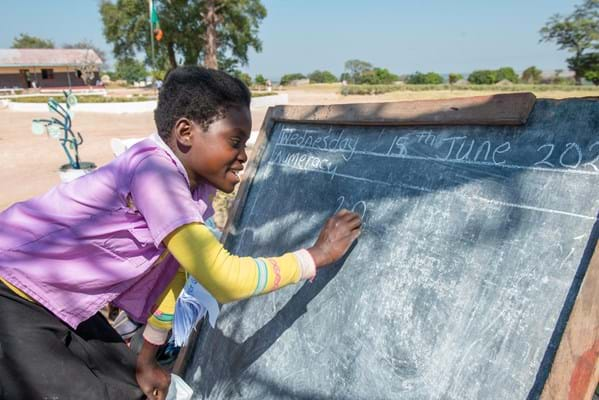
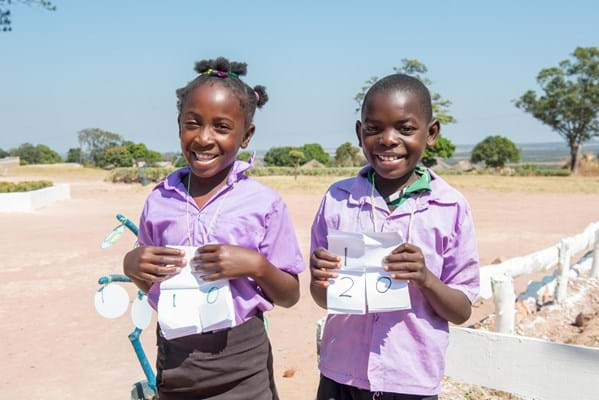
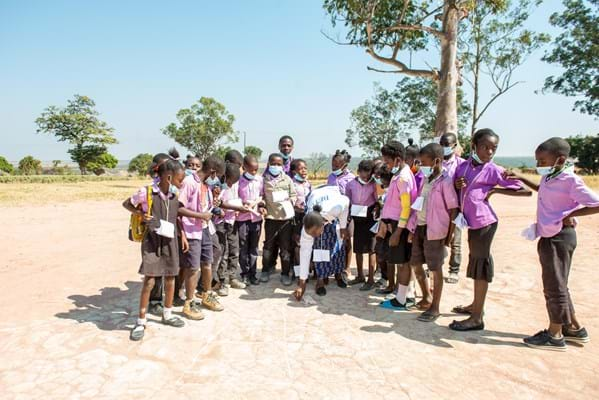
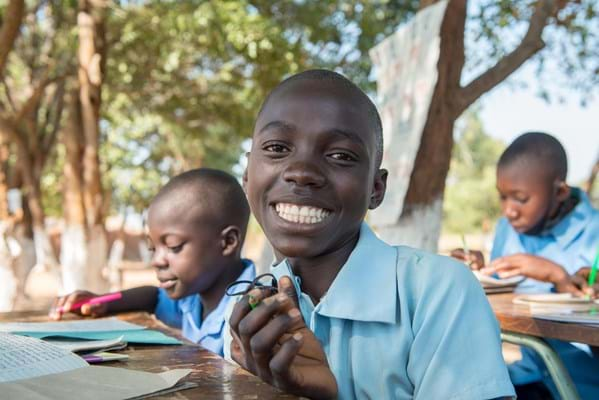
The project
Through this partnership UNICEF will support the Ministry of General Education (MoGE) in strengthening its system to enhance foundational literacy and numeracy for primary level learners, through the implementation of a remedial learning program – focusing on learners in grades 3 to 5.
This learning programme assesses learners through simple and practical tools, and groups them according to their ability level, rather than grade level or age, for one hour each day before, in between or after the school hours for a targeted period. With targeted teaching to each student’s ability, these schoolchildren will quickly catch up and develop basic reading and mathematics skills.
In contrast to previous Catch Up implementation, this programme will ensure that Catch Up will be implemented in a manner that is cost effective and sustainable. This will require exploring and applying innovations to the Catch Up in an effort to make it a programme that can later be taken to national scale by MoGE as the current implementation model is expensive and not sustainable.
Furthermore, the project presents an opportunity for innovative use of technology, such as mobile technology and co-creation of solutions, particularly for innovative delivery of teacher training, with the MoGE. This aligns with the Hempel Foundation’s approach for using technology and other innovative solutions to scale and enable more children receiving access to quality education in an effective and cost-efficient way.
By the end of the project, it is expected that 1,800 teachers are trained and applying the learning programme methodology
Objectives
The programme aims to contribute to improved learning outcomes in foundational literacy and numeracy among primary school learners in Luapula Province.
This will be achieved through three interdependent outputs:
- Establishment of effective and innovative teaching and learning methods
- Ongoing professional development and mentoring for teachers
- Strengthened MoGE’s system and policy guidance to provide an enabling environment towards equitable quality learning
Indhold blokeret
Dette element kan ikke vises, da du ikke har givet accept til følgende typer af cookies:
- Marketing
Du kan ændre dine indstillinger ved at klikke på knappen herunder.
